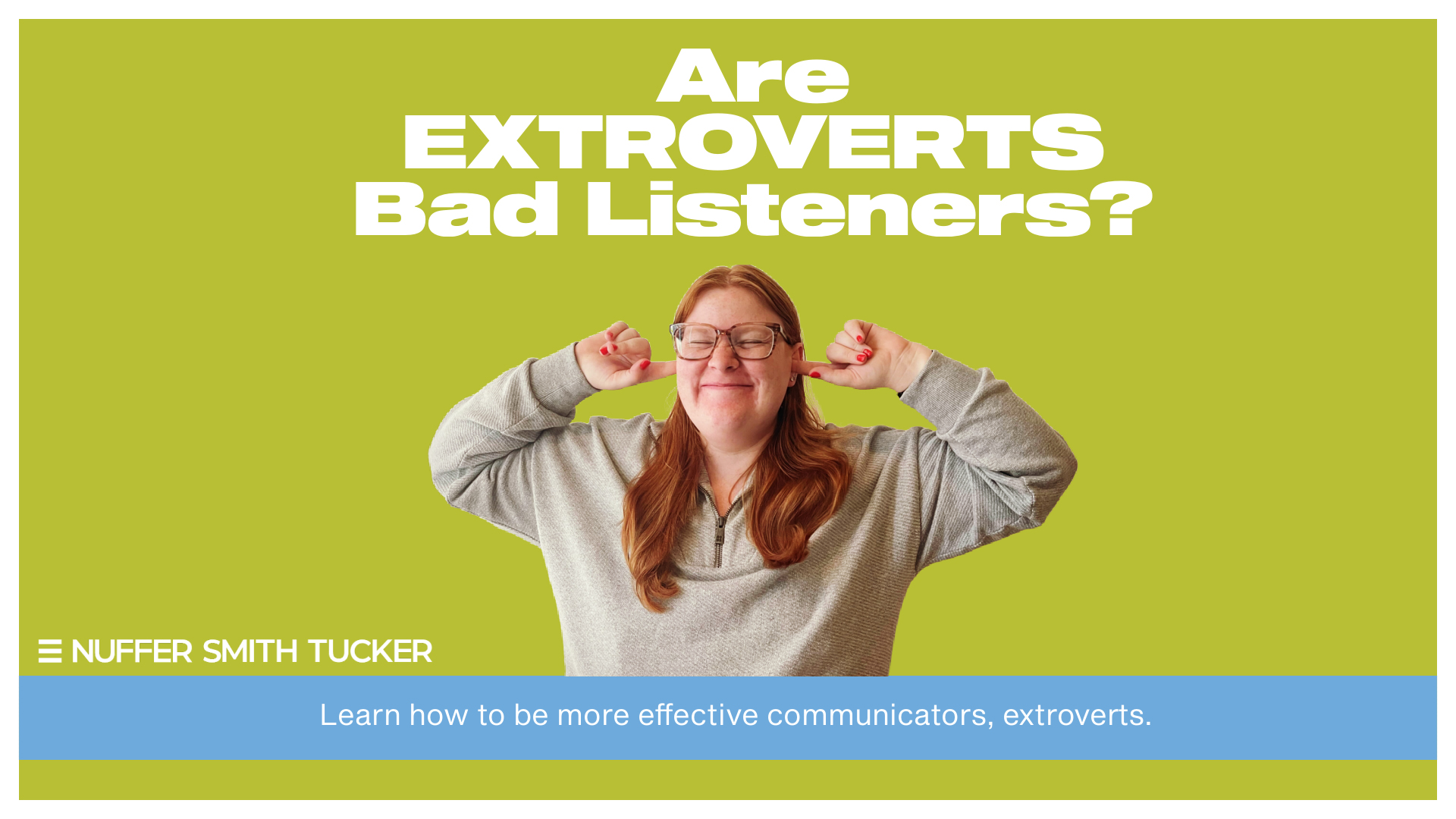I’m an extrovert, which means people (especially in business) often assume I’m a terrible listener. In the corporate world, extroverts can be viewed as blunt, assertive, action-oriented and self-centered. These traits can cause coworkers to perceive extroverts as inauthentic, especially on digital meeting platforms like Zoom or Teams, where it can be harder to read social cues.
Harvard Business School conducted six studies involving nearly 2,500 subjects who were asked to provide feedback about each other’s listening skills in comparison with a personality scale. Responses revealed a significant, negative relationship between an individual’s self-reported extroversion and group members’ ratings of that individual’s listening behavior. In short – research has shown extroverts are perceived as poor listeners. But regardless of your personality classification, everyone can learn to communicate effectively.
Listening is the most fundamental component of interpersonal communication and is not something that just happens naturally. There’s a big difference between hearing what somebody is saying and actually listening and comprehending what they are saying.
To actively listen to your colleagues and clients, you must:
- Concentrate on what is being said
- Listen with all your senses
- Give full attention to the speaker
- Be a receptive listener by providing feedback and/or showing that you’re engaged in the conversation
Showing that you are actively listening can have a big payoff. When your colleagues feel heard, they tend to be more relaxed. The last bullet touches on being a receptive and engaged listener, emphasizing the importance of nonverbal communication and social cues. Making eye contact, nodding and assuming an open and welcoming body position to the person speaking can make a big difference in not only their perception of you, but also your ability to listen attentively.
You can also offer verbal cues that you’re listening by repeating and paraphrasing what a colleague has said. In doing so, you can confirm that your understanding is correct, resolve any areas of confusion and reassure the speaker you’re interested and engaged in the conversation.
When you’re in a conversation, you’re listening to understand – not listening to respond. This concept is especially important in a one-on-one conversation where there are no distractions that could hinder your ability to listen and comprehend the conversation.
For extroverts especially, realize that people need to reflect before answering. It’s important to listen and wait for them to have a chance to respond – you don’t need to fill every empty silence with more words. Everyone must have the opportunity to express their ideas and they can’t do that if there’s no opportunities for them to contribute to the conversation.
Here are a few guiding principles to effectively listen in the workplace:
- Stop talking.
- Provide positive non-verbal cues.
- Remove distractions. Mute your phone and disregard your email – they’ll still be there.
- Be empathetic, patient and impartial.
- Pay attention to tone.
- Listen for ideas – not just words.
- Watch for nonverbal cues.
The next time you’re in a business setting, take a little extra time to observe your colleague’s communication style and reflect on how you can better communicate with them in the future, keeping these tips in mind.

